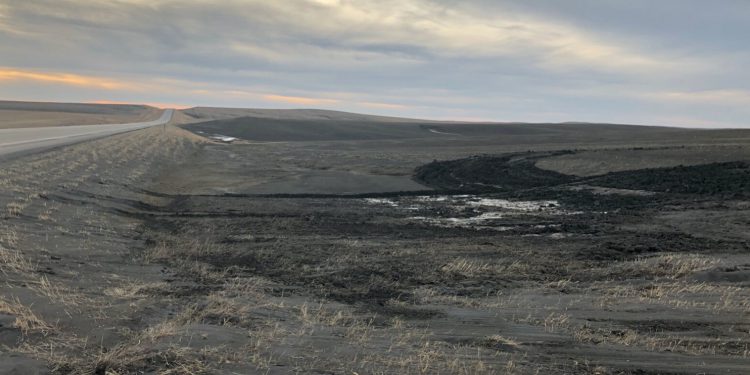NPR reports on Gunsmoke Farms, covering 53 square miles just northwest of Pierre, South Dakota. The food company General Mills, maker of Cheerios, announced in 2018 that it would convert the farm to organic production. The company planned to turn it into an educational hub to teach other farmers “how to implement organic and regenerative agriculture practices.”
Now, some of Gunsmoke Farms’ neighbors say that the farm is doing more environmental harm than good.
Among the critics is Dwayne Beck, a soil scientist who manages South Dakota State University’s Dakota Lakes Research Station, 40 miles east of Gunsmoke Farms.
“It scared me, because normally organic [farming] entails lots of tillage, and those soils are very fragile,” he said.
When the Gunsmoke project was just getting off the ground, in 2018, an expert from the US Department of Agriculture’s Natural Resources Conservation Service drew up a soil conservation plan for the farm. That plan called for wide strips of native grasses across the farm to help prevent soil from blowing, and for the steepest slopes to stay covered, most years, with crops such as alfalfa that don’t require annual planting.
Gary Zimmer, an expert on organic farming who collaborated with General Mills in launching the Gunsmoke project, said that he drew up a plan that incorporated many of these measures. But he said much of his plan was never implemented.
General Mills doesn’t own Gunsmoke Farms or control it directly. It signed a “strategic sourcing agreement” with an investment firm called TPG, an early investor in Uber, which acquired the land to supply General Mills with organic wheat, peas and other crops. TPG then spun off another firm, Sixth Street, which currently owns Gunsmoke. The investors have hired a series of managers to run the farm.
General Mills said in a statement to NPR that turning Gunsmoke Farms into a thriving ecosystem “is a journey” and promised continued efforts to minimize erosion and improve soil health there.
Sixth Street Partners said in its statement that the farm is “early in the process of regenerating land” and that its mission — organic farming — also provides additional environmental benefits, such as lower use of pesticides and synthetic fertilizer.























